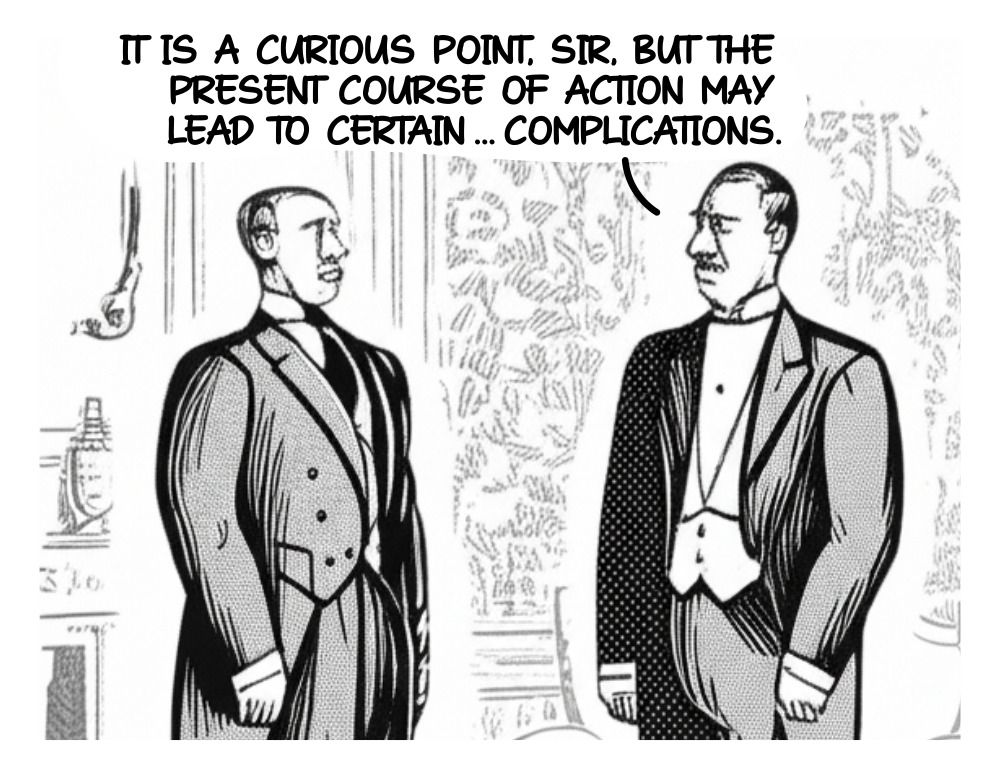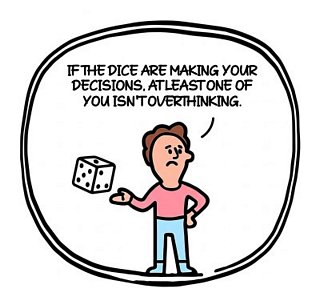
P. G. Wodehouse’s Jeeves and Wooster tales are more than delightful escapades. They offer masterclasses in elegant interaction and psychological finesse. One standout feature is Jeeves’s knack for steering Bertie Wooster away from disaster without resorting to blunt rebuke.
Jeeves never calls Bertie foolish. Instead, he refers to the latest tangle as a “rather complex imbroglio” or a “somewhat delicate situation.” These euphemisms allow Bertie to preserve his dignity while quietly grasping that he has stumbled again. Jeeves’s tact sustains trust, amplifies influence, and fosters a dynamic of gentle guidance over domination.
Central to this diplomacy is Jeeves’s expert use of passive voice. Rather than saying, “You’ve made a fool of yourself,” he offers, “There appears to have been a slight misunderstanding.” Shifting focus from the individual to the circumstance softens criticism. It diffuses blame, avoids defensiveness, and invites collaborative problem-solving—an ideal approach when harmony matters more than fault.
Passive voice offers distinct advantages in criticism. It cushions judgment, encourages reflection, and de-emphasizes the actor. By highlighting the event rather than the person, it makes feedback feel less accusatory and more constructive. This reduces tension and promotes respectful dialogue, especially in delicate or hierarchical relationships.
Yet diplomacy falters when passive voice is overused. “Mistakes were made” may sound politic, but it lacks clarity and direction. Vagueness erodes accountability.
Idea for Impact: Choosing between active and passive voice depends on intent. If tact is the aim, passive phrasing—handled as artfully as Jeeves handles a cravat—serves a distinct purpose. But when honesty and accountability take precedence, clarity matters more than softness. Language is not just what we say; it is how we say it. And in that, Jeeves stands as a model of refined expression.
 The
The 

 When work is actually decent, everything else starts to click. A good job challenges you just enough, pays the bills, surrounds you with coworkers who aren’t
When work is actually decent, everything else starts to click. A good job challenges you just enough, pays the bills, surrounds you with coworkers who aren’t .jpg)
 There’s an old joke about the Soviet Union’s approach to industrial planning. It’s been told so often it’s
There’s an old joke about the Soviet Union’s approach to industrial planning. It’s been told so often it’s  We romanticize transformation—new routines, cleaner diets, sharper habits. But in practice, change rarely arrives in cinematic sweeps. It comes in quieter forms: a switch from soda to water, a walk around the block, skipping the evening snack. Small choices. Easily overlooked. In aggregate,
We romanticize transformation—new routines, cleaner diets, sharper habits. But in practice, change rarely arrives in cinematic sweeps. It comes in quieter forms: a switch from soda to water, a walk around the block, skipping the evening snack. Small choices. Easily overlooked. In aggregate,  We make thousands of decisions daily—what to wear, which email to answer first, whether to take the scenic route or stick to the main road. Most are low-stakes, but the act of choosing can sap mental energy. That’s
We make thousands of decisions daily—what to wear, which email to answer first, whether to take the scenic route or stick to the main road. Most are low-stakes, but the act of choosing can sap mental energy. That’s  In the glossy canon of business magazine profiles and business school leadership panels, few rituals are as misleading as the executive career interview. A high-powered figure is asked for wisdom, and what follows is a polished origin myth framed as mentorship—a display of survivorship bias wrapped in aspirational prose. Biography
In the glossy canon of business magazine profiles and business school leadership panels, few rituals are as misleading as the executive career interview. A high-powered figure is asked for wisdom, and what follows is a polished origin myth framed as mentorship—a display of survivorship bias wrapped in aspirational prose. Biography .jpg)